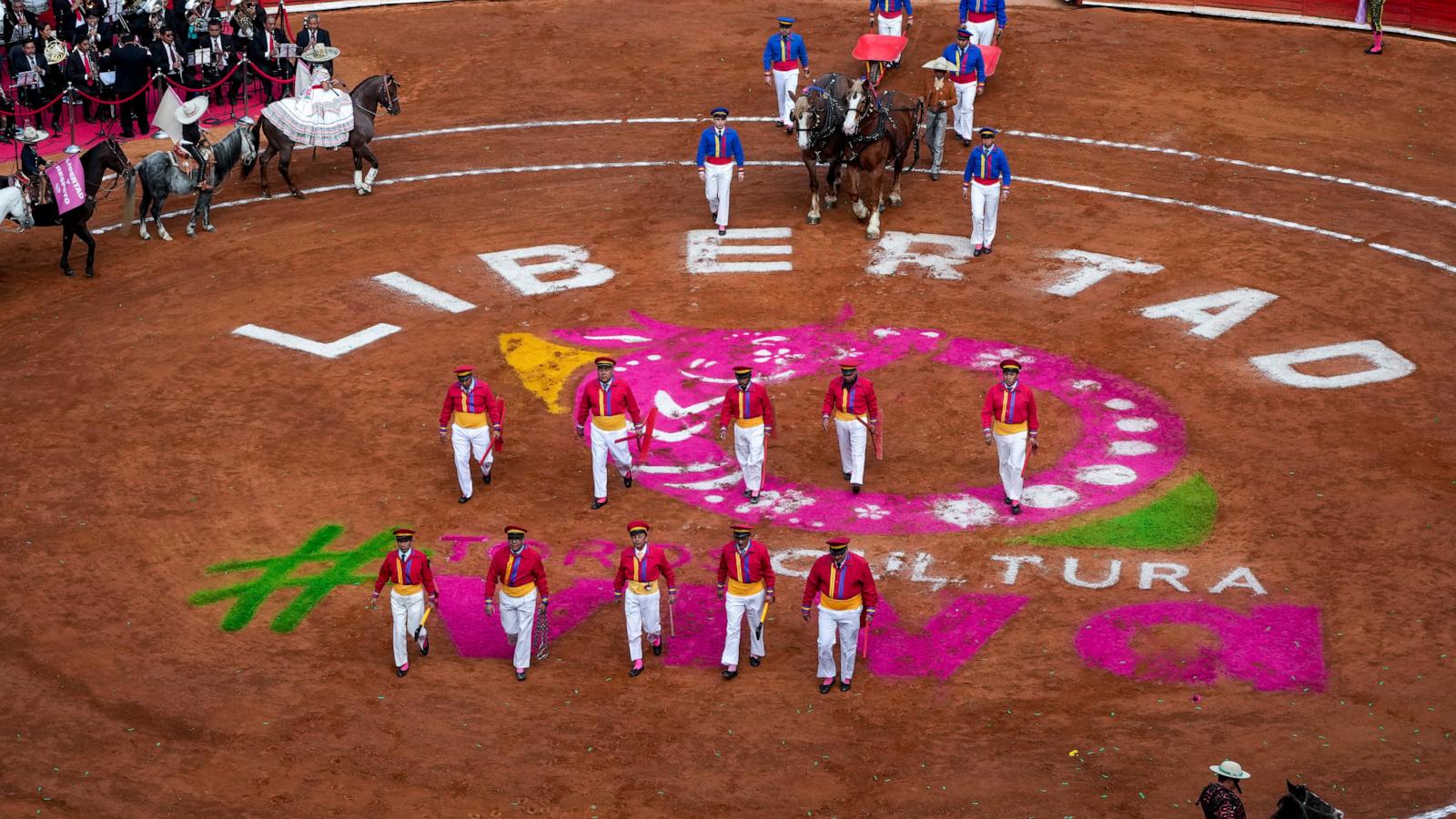Animal rights activists protested outside the world’s largest bullring in Mexico City as bullfighting resumed following a nearly two-year hiatus due to a court suspension.
Dozens of protesters marched to the city’s Plaza de Toros Mexico bullring, decrying the event.
Mexico has hosted bullfights since the 16th century. But in recent years, animal rights activists have intensified their fight against the practice.
Only a handful of Mexico’s 32 states have thus far banned the practice.
Ranchers, businessmen and bullfighting fans argue that a ban would risk tens of thousands of jobs linked to the activity, which they claim generates some $400 million (€369 million) annually.
In May 2022, a local court ordered an end to bullfighting activities at Plaza México in response to an injunction presented by the civil organization Justicia Justa.
However, the nation’s Supreme Court temporarily revoked the suspension in December 2023.
The city held its first bullfight since 2022 on Sunday.
A judge had ordered the indefinite suspension of the practice, which dates back to the 16th century in Mexico, agreeing with animal rights activists who had filed a suit.
The Supreme Court revoked the decision last month, but a legal battle between supporters and opponents is likely.
Local media reported that the judges ruled only on technical aspects and have yet to decide on the case’s merits.

People waved banners with slogans, including “no more deaths of innocents.”. Others wore bull masks and painted themselves red.
But inside the venue, thousands celebrated its return with chants of “long live freedom.”
President Andrés Manuel López Obrador has proposed a referendum on the future of bullfighting in Mexico City.
Around 250,000 bulls are killed in bullfights globally each year, according to Humane Society International.
Bullfighting is still legal in many areas of Mexico, which is one of the few countries that still allows the practice.
Other countries include France, Portugal, Colombia, Venezuela, Peru and Ecuador.
While it is also legal in Spain, some cities have outlawed the practice.













